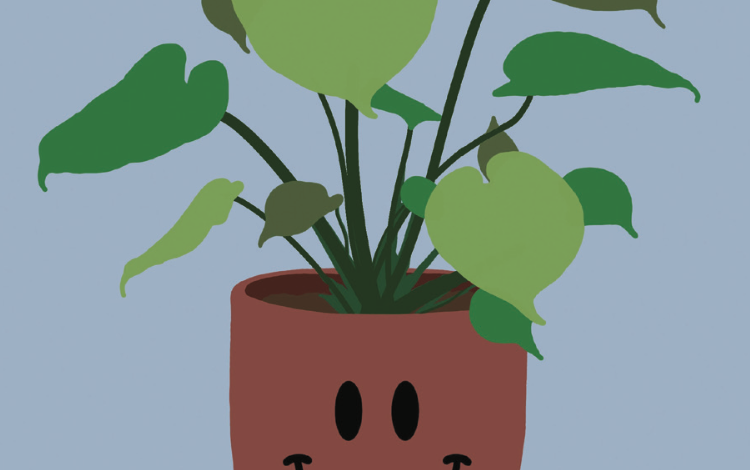
Power of plants on a college campus
By Bailey Adams
On a college campus such as Rider’s, we make up a community that, when working together, could meaningfully impact how we leave the earth. I believe our first step in leaving a positive legacy is to connect to our environment through the beauty and benefits of nature.
Aeryn Gilmore, a senior psychology major, sums it up perfectly with her personal experience. “Watching my parents drastically expand their garden in the past two years has made me realize how connected people can become to the earth. Caring for plants takes patience, understanding and resilience – key aspects of life. The more effort we put into the earth the more connected we shall feel and benefits we shall receive.” One of the best ways to connect to nature is to bring it into your home or here on campus in your dorm.
Having a houseplant in a living space is a great reminder to take little steps in our daily lives that make a big impact on our environment. Although Rider has a policy that doesn’t allow live trees in your dorm room, there are many other plants that can be added to your living space.
While caring for your plants, you can reduce your plastic use by utilizing a reusable water bottle and participating in Fill it Forward with other Rider students. Your plants will thank you if you water them using Rider’s filtered bottle refill stations. Another great way to water your plants is to collect the cold water at the beginning of a shower in a bucket or container, or even use the water you might have forgotten for a couple of days in a water bottle. Maybe you are an avid coffee drinker or an aspiring chef on campus. Any of your spent coffee grounds or food scraps, such as eggshells and banana peels, could be composted and used to feed your plants.
Indoor houseplants are a great addition to any space, and their benefits are endless. A study by the National Institute of Health found that students hadimproved productivity with plants in their classrooms. They were said to have greater concentration and focus, as well as a more relaxed mood compared to the absence of plants. Maybe try out a plant in your study area. It just might help you focus and stay calm the next time that five-page essay is due by midnight.
We all know dorms can get stuffy, especially with the changing of seasons, but did you know there are houseplants that purify the air? Your plant will clean the air for you while you sleep. Talk about earning its keep! Some of the best plants for air quality are pothos and snake plants. Many other plants will benefit you too, such as aloe, which is known for its ability to help relieve minor burns and cuts. Athletes on campus who are in the sun for practices and games for hours would benefit greatly from an aloe plant.
Plants are rewarding to care for, and they can help improve the mental health of college students. College is a place full of classes, sports, work, clubs — the list of obligations never ends. But that is why it’s so important to take a few moments each week to unwind and relax, which is how most plant owners would describe caring for their plants. When talking about her philodendron brasil, Elise Spedding, a senior public relations major, said, “Having a plant is like taking care of a pet. You get really happy when you see a new stem or leaf growing.”
The beauty of houseplants is the flexibility they offer. There is always going to be a plant that will fit your lifestyle while still benefiting you. Whether you are interested in a plant for a low-light setting where a pothos would thrive, or a plant that you could admire but forget about for a length of time, like a succulent, plants are varied enough to fit the unique needs of college students. You might find that keeping houseplants and trading cuttings among friends is your newest hobby here at Rider. If so, keep an eye out for emails from the Eco-Reps about upcoming BroncsGoGreen meetings this year for our plant propagation workshop that has been a hit in the past.



